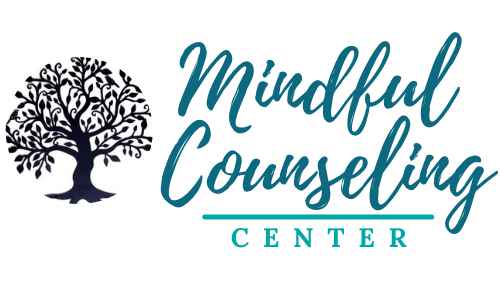Habits for Self-Compassion and Mindfulness

In the last blog, we outlined a few strategies to help cope with mental suffering and find joy. This blog dives a little deeper into examples of habits that support two of those strategies: nurturing self-compassion and practicing mindfulness.
Nurture Self-Compassion
Self-compassion is being kind and understanding with yourself, even when confronted with personal failings, suffering and pain. It is a powerful gift to give yourself. (See our blog, Cultivating Self-Compassion.)
Here are several illustrations of habits you can develop to nurture self-compassion –
- COUNTER SELF-CRITICISM WITH COMPASSION: When you are feeling self-critical, counter this feeling by talking to yourself as if you were responding to a good friend or mentee who was being critical of themselves. Talk to yourself in third person if it helps. (An example: I notice that you consider yourself as not as smart as the other students in your program, but this opinion is based on self-doubt not actual performance. Your objective success in the program demonstrates your considerable intellectual capacity and validates that you are as worthy of a place in the program as the other students.)
- OFFER KINDNESS TO YOUR YOUNGER SELF. If you are feeling shame/self-blame about something from the past, work to see yourself/your actions objectively/from a distance and then respond to that version of yourself with compassion. It is recommended that a counselor support you in this exercise. (One example: As a child, you didn’t have any options for getting out of bad situations, nor the words to explain to others what was wrong. So, you tolerated the abuse until you could get away from the abuse. You did what you needed to survive. There is no shame in that. It is time to honor the child for saving himself.)
- ENGAGE REGULARLY IN METTA MEDIATION. See our blog, Cultivating Goodwill.
Practice Mindfulness
Mindfulness involves paying attention in the present moment, intentionally and without judgment. Mindfulness practice trains your mind to notice and accept your thoughts, emotions and sensations and where they take you. Then, rather than getting struck in ruminations about the past or worry about the future, it brings your attention back to the present. (See our blog, Why is Mindfulness Important?)
Here are some examples of mindful practice habits can be used in the service of taming difficult emotions and finding peace and contentment.
- See our blogs, Riding the Wave of Anxiety and Power of the Pause.
- Deep breathing exercises (one example)
- Guided imagery contemplations
- Meditation
- Silent prayer
- Activities to focus attention on your senses (one example)
- Activities that tap into your creativity
RAIN is a meditative practice that brings both mindfulness and self-compassion to coping with emotional difficulty.
RAIN guides you to focus attention on following contemplations:
Recognize what is going on
Allow the experience to be there, just as it is
Investigate with interest and care
Nurture with self-compassion
See this article from Tara Brach for more explanation about RAIN and for a free audio meditation to practice it.
Contact the Mindful Counseling Center if we can assist you in nurturing mindfulness and self-compassion to reduce mental suffering: 609-377-5859 or go to our website.
Article by Kristin Littel
Related Blog: Balancing Suffering with Healthy Habits
